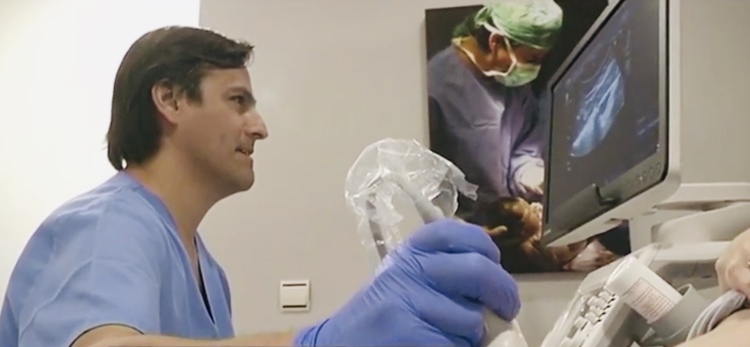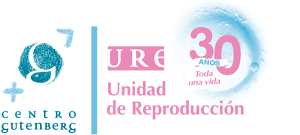Ovulation: why it’s important to know when it takes place in assisted reproduction

If you’re trying to get pregnant, one of the first things you should determine is when ovulation is taking place so that you can calculate your fertile days. Perhaps you’ve heard of the “fertile window” or the “fertility window”?
However, not all moms‑to‑be fully understand these concepts. What really happens when you ovulate? How can you know when it’s taking place? Is there any way to improve ovulation? These are some of the questions we are going to try to answer for you in this article.
What is ovulation
In humans, ovulation takes place during each reproductive cycle. It is the time when a female is most fertile and occurs when the ovary releases an egg. The egg then travels down the Fallopian tube waiting to be fertilised by a spermatozoid. If this occurs, the fertilised egg will begin to develop as it travels towards the uterus where the embryo could then implant.
The egg lives for 24 hours on average, meaning that if it has not been fertilised you will need to wait until you ovulate again for another chance to get pregnant.
How to know when ovulation occurs
In order to calculate when you are going to ovulate, you first need to understand the phases of your menstrual cycle as well as their length.
To do that, we count the number of days between the first day of one period and the first day of the next. This tends to be around 28 days, with limits ranging from 26 to 35 days. From one month to another the length of a woman’s cycle may differ by approximately 2 days, with her period arriving 1 or 2 days earlier or later than the previous month. Ovulation correctly takes place in about 97% of women whose menstrual cycles are regular every 26-35 days.
Keeping this in mind, your fertile days are those around the time of ovulation. Normally a female ovulates 14 days before her period will come. In a regular 28‑day cycle, ovulation occurs on day 14 of the cycle. However, in a shorter cycle lasting 25 days, for example, ovulation will take place around day 11. To know when ovulation will take place in your body, you should subtract 14 from the total length of your cycle.
At any rate, your fertile days are not limited to when you are ovulating. There’s also a chance of getting pregnant approximately four days before and after ovulation, and the four days prior to ovulation are best.
At our fertility clinic in Spain we say that perseverance is the best ally to your fertility. So if you are trying to get pregnant, then unprotected intercourse with your partner is recommended every other day during your fertile days.
How to help ovulation
As we’ve said on a number of occasions, a female’s age affects her fertility and chances of conceiving. Changes in ovulation can occur. For example, the duration of a woman’s menstrual cycle gets shorter over time, meaning that a female over the age of 35 will have shorter cycles than in previous years.
However, there are some everyday habits you can incorporate into your routine to delay these changes and help favour correct ovulation.
The first habit has to do with food and diet. Although there are myths and realities about the foods that improve female fertility, it’s true that eating a varied and balanced diet will help you to stay in good health and, in turn, remain more fertile. For example, antioxidants and fatty acids are essential to the body’s proper functioning and contribute to maintaining good reproductive health.
We also recommend maintaining a healthy weight, as being overweight can make it more difficult to conceive. Just like with poor eating habits, an unhealthy weight (being overweight or being extremely thin), can cause menstrual cycles to become abnormal and in turn have a negative impact on ovulation.
Likewise, and though it’s difficult due to the fast pace of life today, it is important that you try to avoid stress. There are several studies that have shown a direct relationship between stress and fertility. Thus, taking it easy and trying to stay relaxed, as best as possible, will have a positive impact on your ovulation.
Another habit we recommend is physical activity. Exercising regularly not only has benefits for your health but it can also help improve your fertility.
Finally, it is crucial that you stay away from drugs and other habits that can harm your fertility. Even a moderate intake of alcohol and/or tobacco, as well as other drugs, can negatively affect your ovulation.
Now you have a better understanding of what ovulation involves and monitoring it is clearly essential when you are trying to get pregnant, whether it be naturally or using assisted reproduction.
Additionally, as you’ve seen, the habits we recommend incorporating into your daily routine don’t require a lot of effort and in return will improve your chances of getting pregnant.

